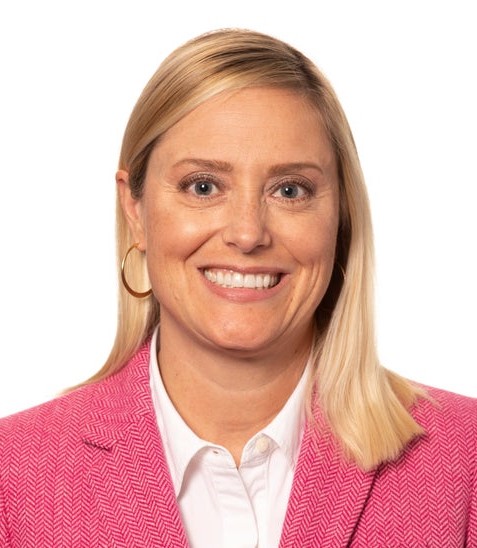December 20, 2023

Angela L. Myers, MD, MPH, FAAP, FPIDS is Professor of Pediatrics at UMKC School of Medicine and the Division Director of Pediatric Infectious Diseases at Children’s Mercy, Kansas City. In 2021, she became Medical Director for the Center for Wellbeing at Children’s Mercy Hospital. She completed her medical degree at the University of Missouri-Kansas City School of Medicine where she was recognized with the Laura L. Backus, M.D., Memorial Award for Excellence in Pediatrics. Both her pediatric residency and fellowship were at Children’s Mercy Kansas City. Additionally, she completed a master’s degree in public health with distinction from the University of Kansas.
Dr. Myers recently concluded a term on the PIDS Board of Directors. She currently serves on the American Board of Pediatrics, Pediatric Infectious Diseases Sub-board, and on the AAP Committee on Infectious Diseases.
Why Pediatric ID? I thought I was going to be a pediatric oncologist. Even before medical school, I was convinced of that because of my background and stayed with that conviction through medical school and first year of residency. Then in July of my second year of residency I did an ID elective. And I thought, I really like this. ID doctors get to go everywhere in the hospital, they aren’t just in one place with one patient population. That was the start of a big internal struggle for me. It took several months for me to let what I thought I was supposed to be go and to embrace what I wanted to be.
Where have you taken your ID focus? My work and passions have evolved over the course of my career. I think that’s probably true for most people. Currently, I’m focused on wellbeing and our pediatric ID workforce. A large portion of my job now is in wellbeing. There’s a lot of misconception about what wellbeing is and what wellbeing work is. It goes beyond personal resilience, like yoga, mindfulness, and muffins. It’s about creating a positive culture in the place you work and having a sense of connection, of belonging, and making systemic changes to remove barriers, thus improving the workplace itself.
On the workforce side, I was a program director for about a decade, involved with graduate medical education research and training fellows and other trainees. Through that work I developed a passion for workforce and the lack thereof when it comes to ID. We don’t have enough trainees choosing pediatrics, in general, and further along, pediatric infectious diseases. I became very interested in the causes for that. I have been fortunate to work with a lot of great people looking into it from multiple angles. Some of the reasons are medical school debt, lower salaries, and work schedules being different from shift workers. We’re also looking at it from the perspective of what value pediatric subspecialists bring and to leverage that work into more actionable steps to hopefully move the needle on things that need to change nationally.
What is a recent development in peds ID you are working on? I’m the chair of the Council of Pediatric Subspecialties (CoPS), one of the sponsors of the NASEM (National Academies of Science, Engineering and Medicine) study on workforce and the four policy briefs that came out of that. From our work, we published The Importance of Subspecialty Pediatricians to the Health and Well-Being of the Nation’s Children in the Journal of Pediatrics and Averting a Crisis: Innovating Pediatric Infectious Diseases Recruitment and Training in JPIDS. The hope is that we use that information publicly to push on Capitol Hill to get changes made: Medicaid parity to Medicare, really effective loan repayments programs , more exposure to pediatrics in medical school, and all the work that PIDS is doing for early exposure as well.
I’ve found passion in that work because it is all, to me, really connected. I can see the connections globally. I think to keep our amazing profession alive, we have to be invested in doing the work to get people to really understand.
What do you enjoy most about being a PIDS member? What keeps you renewing your membership? I think it’s really important to be invested and engaged with your peers. We all have a shared, collective responsibility to continually innovate to move the needle forward. I take that pretty seriously. I’m always encouraging my faculty to be engaged and involved in PIDS. That’s how you make change. Get in, roll your sleeves up and do the work.